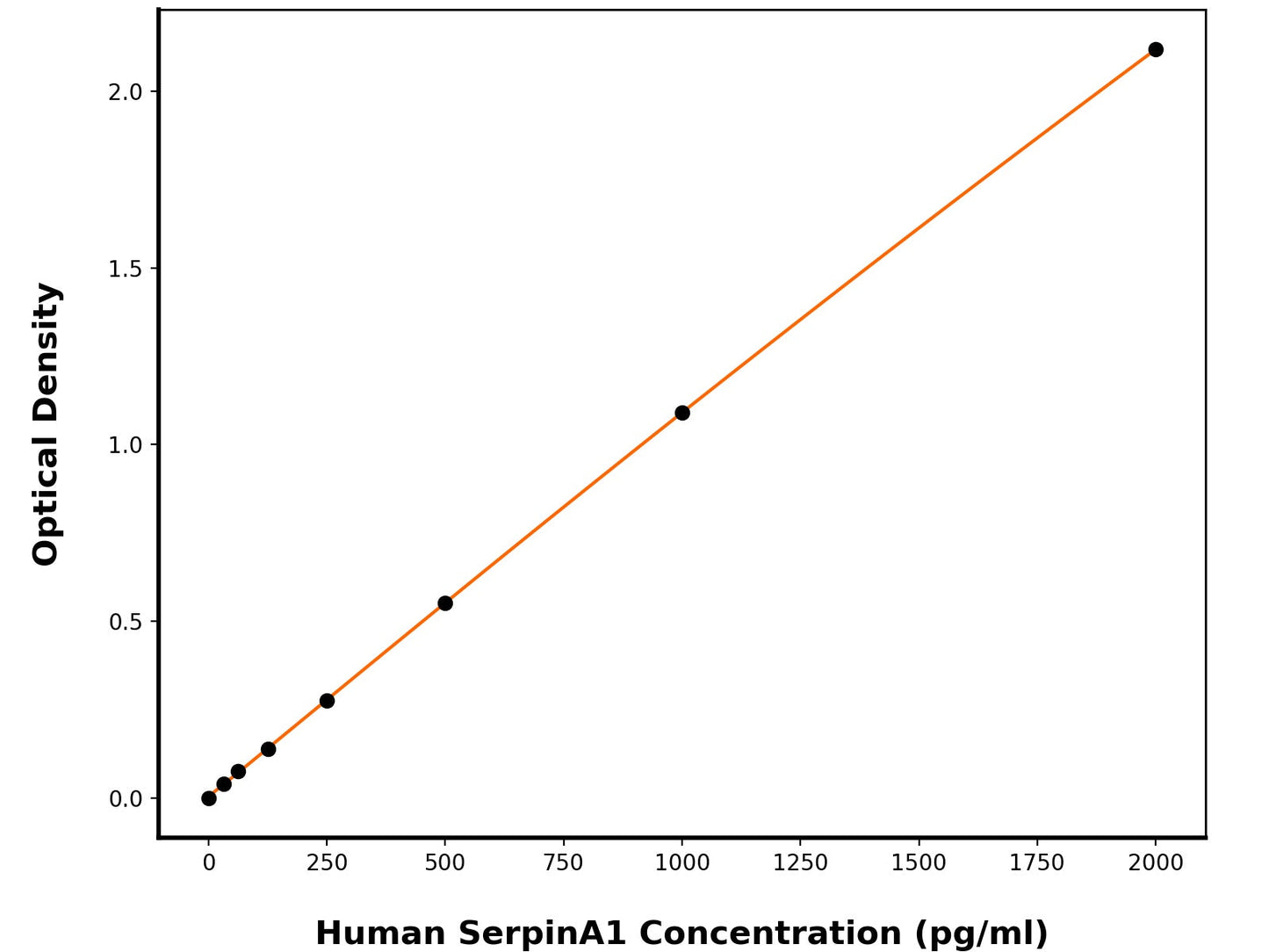1
/
of
1
Human Alpha-1-Antitrypsin (SERPINA1) ELISA Kit
Human Alpha-1-Antitrypsin (SERPINA1) ELISA Kit
This ELISA kit is designed to detect Human Alpha-1-Antitrypsin (Human SERPINA1). The assay plate has been pre-coated with mouse anti-Human SerpinA1 monoclonal antibody. When the sample containing SerpinA1 is added to the plate, it binds to the antibodies coated on the wells. Then, a horseradish peroxidase conjugated mouse anti-Human SerpinA1 Antibody is added to the wells and binds to SerpinA1 in the sample. After washing the wells, substrate solutions are added, and the color intensity is directly proportional to the amount of Human SerpinA1 present. The reaction is stopped by adding an acidic stop solution, and the absorbance is measured at 450 nm.
Catalog No:
BPE063
Regular price
$624.00 USD
Regular price
$480.00 USD
Sale price
$624.00 USD
Unit price
/
per
2 weeks
Couldn't load pickup availability
Product Details
Species Reactivity
Human
Sensitivity
7.15 pg/mL
Detection Range
31.25-2000 pg/mL
Sample Type
Serum, plasma, cell culture supernates
Incubation(s)
3.5 hour(s)
Research Areas
Cancer, Cardiovascular, Metabolism, Cell Biology
Background
SerpinA1, also known as Alpha-1 antitrypsin (AAT), is a prototype member of the Serpin superfamily of the serine protease inhibitors. This serine protease inhibitor blocks the protease, neutrophil elastase. Alpha-1 antitrypsin is mainly produced in the liver and acts as an antiprotease. Its principal function is to inactivate neutrophil elastase, preventing tissue damage. SerpinA1 (alpha1-antitrypsin), an acute phase protein and the classical neutrophil elastase inhibitor, is localized within lipid rafts in primary human monocytes in vitro. Its association with monocytes is inhibited by cholesterol depleting/efflux-stimulating agents (nystatin, filipin, MbetaCD (methyl-beta-cyclodextrin) and oxidized low-density lipoprotein (oxLDL) and conversely, enhanced by free cholesterol. Furthermore, SerpinA1/monocyte association per se depletes lipid raft cholesterol as characterized by the activation of extracellular signal-regulated kinase 2, formation of cytosolic lipid droplets, and complete inhibition of oxLDL uptake by monocytes. Previous population studies have suggested that heterozygote status for the AAT gene (SerpinA1) is a risk factor for chronic rhinosinusitis with nasal polyposis (CRSwNP). Alpha-1 antitrypsin deficiency is a recently identified genetic disease that occurs almost as frequently as cystic fibrosis. It is caused by various mutations in the SerpinA1 gene, and has numerous clinical implications. Alpha-1 antitrypsin deficiency is an inherited disease affecting the lung and liver. In the liver, alpha-1 antitrypsin deficiency may manifest as benign neonatal hepatitis syndrome; a small percentage of adults develop liver fibrosis, with progression to cirrhosis and hepatocellular carcinoma. Its most important physiologic functions are the protection of pulmonary tissue from aggressive proteolytic enzymes and regulation of pulmonary immune processes.
Shipping Condition
Shipped on cold gel packs.
Storage Condition and Shelf Life
This product can be stored at 2-8C.
Analyte
Alpha-1-antitrypsin
Regulatory Status
For Research Use Only

